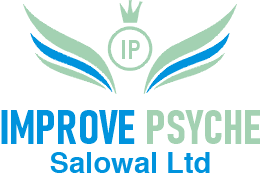All advice on self-development, happiness, confidence, and success has one aspect at the core of it all; love yourself. Yet, most people do not grasp what it means and what self-love entails. Unfortunately, self-love is often mistaken for selfishness, narcissism, or self-conceit, which gives it a negative perception. However, in every aspect of your life, loving yourself is vital for a well-balanced and happy life.

In a nutshell, self-love is having a high regard for your personal well-being. It starts with the overall self-acceptance and appreciation of who you are. Loving yourself is a deliberate action. It includes actions to yourself and, more importantly, how you think and feel about yourself.
A vital part of self-love is developing a deep connection to yourself and understanding and accepting all parts about you, including those you may be ashamed of or angry about. Another part is understanding that you are worthy and deserving of the best, and happiness and realization of your dreams.
To conceptualize loving yourself, think about how you would treat yourself if you were a caring friend to yourself.
How would you talk to yourself? How would you support yourself even when you fail or are struggling? You would trust yourself more and seek to act in ways that will physically, mentally, and spiritually support your well-being.
Self-love does not mean you do not experience negative feelings or moments you feel angry about yourself. You still do, but you recognize them for what they are and not as a definition of you. It allows you to know where you have erred, but you do not give in to self-judgment and hatred. Instead, you are understanding and take responsibility to get yourself from the circumstances.
What Does Self-Love Involve?
Self-love, like happiness, does not happen in a snap. It calls for conscious and consistent effort and a significant change of attitude [https://www.psychologytoday.com/us/blog/intimacy-path-toward-spirituality/201510/what-it-really-means-love-yourself?amp]. Practicing self-love includes doing the following;
Seeking to know and understand yourself.
The first step in loving yourself is knowing yourself. It is why forming a deep connection with yourself is critical to self-love. Knowing yourself means going beyond the physical understanding to know your strengths, fears, things you are genuinely passionate about, pain, joys, values, and other intimate aspects. Take in the negative and the positive, and only then can you fully appreciate yourself and start making progress. To know yourself, you can start with thinking about your personal values.
Being honest with yourself
Any genuine relationship relies on honesty. At times you get used to lying to yourself that soon it becomes a habit and an obstacle. You hide your pain, your values and keep making excuses as to why you did not choose yourself or why you made a decision detrimental to your well-being. Being honest with yourself gives way to total acceptance and evaluation of our actions and thoughts. It is okay not to be okay and to admit that you are not okay.
Holding yourself accountable
Closely related to honesty are accountability and responsibility. This aspect of self-love puts the power in your hands. It is not about being judgmental but understanding that only you can choose what is best for you. It also requires you to be accountable to yourself when you keep ignoring yourself. Holding yourself accountable also enables you to maintain consistency in living according to your values and choosing to improve yourself.
Practicing self-care
Self-love leads to self-care, and self-care promotes self-love. Because you love yourself, you consciously decide to look after yourself physically, mentally, and spiritually to enhance your well-being. The best self-care comes from knowing yourself and what is good for your health and growth and not comparing yourself with others. Self-care is also not a luxury, so it encourages sufficient rest, a good diet, cultivating healthy relationships, meditation.
Choose healthy company and relationships.
Loving yourself may require you to make specific changes in your social life. You should seek to have healthy relations, not bases of co-dependence or exploitation. Friendships should not be to fill a void you have. Seek people who positively look at you and encourage you to be better while still maintaining your authenticity.
Learn to forgive yourself
The challenge most people face with self-love is forgiving themselves for past transgressions. Most of the time, you were the one transgressed and feel you could have done better, yet you cannot judge yourself with the knowledge you have presently. Even if you were the transgressor, the regret means you still have a conscience, and you are not the same person. You will often make mistakes, so it is healthy to be compassionate and forgiving to yourself.
Set boundaries
Learning to say no and being assertive of your values is vital in loving yourself. It is the only way you will stand up for your dreams and passions and avoid toxic situations. It is also the only way you will maintain a balance of everything around you and let people learn to respect you. You also have to learn to say no to yourself to avoid indulgences and excesses and make necessary habit changes.
Practicing gratitude
Practicing gratitude makes you realize the plenty of positive stuff happening in your life and makes you attract more of the same. It also helps overcome the negative thoughts you have in mind and realize the many blessings you have, building and enhancing your self-perception.
Learning to let go
Past relationships, careers, trauma, and other unfortunate events in yourself can fill you with pain, grief, and regrets. If you do not accept them for what they were and let go of the past, they become limiting your present and harm your future.
Letting go does not mean you pretend they did not happen, but accepting they did and nothing you can do to change that. It allows you to stop viewing the present from these unfortunate events’ prism and live your life fully and overcome the pain and fear.
Pursuing your dreams and passions
Loving yourself involves defining your dreams, values, and passions and choosing to pursue them. You can pursue goals in your social and professional life set by others but still, end up miserable and unhappy. If you are looking for a fulfilling life, you must define your success and goals according to your values and strengths.
Why should you love yourself?
Self-love is an essential part of leading a fulfilling life with benefits such as;
Health benefits
Loving yourself has a significant impact on your overall health. Your mental health benefits the most because self-love helps you overcome and prevent several conditions, including depression and anxiety. Since self-love promotes self-care, you will also take up healthy lifestyle habits, including a healthy diet and exercise, which positively improves your health. You will be motivated to practice meditation and seek help for any addictions boosting your overall health.
Contentment
Self-love is essential for you to have any contentment. Contentment is a mental state of being satisfied and grateful. It is the key to tranquility and allows you to distinguish your needs from your wants. Being content allows you to focus on the present and overcome your fears. Contentment is also crucial in avoiding comparisons with others which can only create feelings of inadequacy and jealousy. Self-love leads to contentment and the realization that you have your unique path.
Self-esteem and confidence
Self-esteem is essential in all aspects of your life. It enables you to seek what is best for yourself since you know you are worth it. You are also more assertive in defining and defending your values. Self-esteem also gives you confidence which you need to advance in your career, take risks, date better partners, and even start your ventures. Self-esteem only comes after you have accepted and appreciated yourself for who you are now. Loving yourself allows you to acknowledge any perceived failings but not letting them hold you or make you feel any less worthy.
Healthy relationships
While it may seem easier to love others than yourself, such relationships can only be unhealthy and toxic either to you or both parties. It is only in loving yourself that you can find the necessary empathy to love others. It also means you seek relationships that are beneficial to both parties, not out of neediness. You are in the right frame of mind to offer love without manipulating or judging others based on your past experiences or fears. You can also set boundaries and assert, preventing abuse from others.
Happiness
Happiness comes from gratitude, acceptance, joy, achievements, and living your life by the values you love most. You cannot have all these if you are judgmental and cruel to yourself and always feel you are lacking. To enjoy the present moment and even realize what you love most, you need to understand and love yourself. Loving yourself allows you to notice your achievements, be forgiving to yourself, and be constantly grateful.
Resilience
Because of the nature of life, unfortunate events will always happen. Some of these will be from your actions and others completely out of your control. The only way you can successfully lead life despite the unpredictability of such events is resilience. When you love yourself, you know when things are beyond your control and when to take responsibility. You also forgive yourself, and it gives you the mental tenacity to keep bouncing back from any setback.
Loving yourself means understanding and accepting yourself as you are presently and continually showing yourself care, compassion, and gratitude. Even when you seek self-improvement, it does not come from self-hate but the point of security. The improvement is not chasing after perfection but lends itself to acceptance of ‘good enough. Achieving self-love is a journey that you will find rewarding and a source of happiness for sustainable mental well-being.



